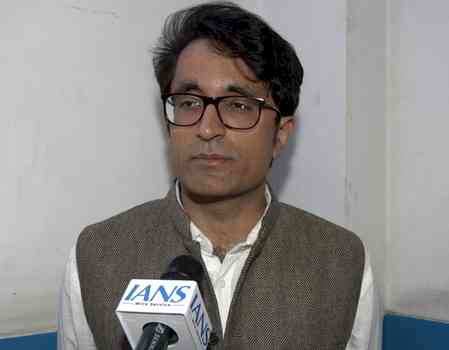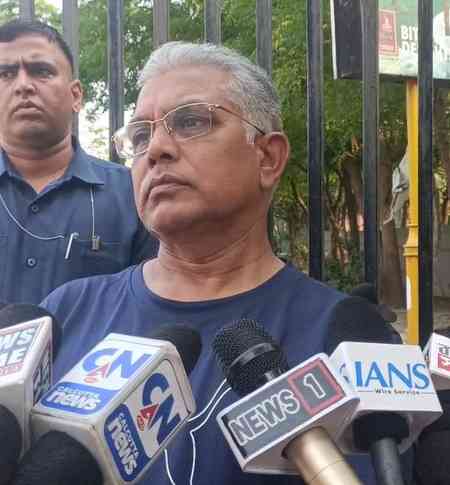Preparing for third wave of Covid-19 - Aster Hospitals, Bangalore announce upskilling courses for healthcare workers
Aster Hospitals, Bangalore has collaborated with over five other hospitals to train the healthcare workers

Bangalore: Keeping up with its commitment to save several lives, Aster Hospitals, Bangalore commenced an Advanced Life Support Training in Paediatrics with Special focus around COVID in Children. This course is for healthcare workers to educate and train 50 frontline individuals in COVID-related care and treatment protocols. These courses aim to train healthcare professionals in tackling the third wave and enable them to assist the doctors while they are treating the patients.
The customized training schedule varying from 2 days intensive workshop to 6 weeks self-paced course will include 50 nurse trainees and Rapid response team members in the first batch who will be taught about Basic and Advanced Life support, Identification of a sick child, COVID specific - signs, symptoms, clinical course, and early warning scores for hospitalized patients under monitoring, etc. Additionally, the healthcare group is also conducting simulation-based training for nurses to prepare them for the third wave of the covid-19 virus and beyond.
Under the simulation-based training, the hospital provides hands-on exposure to the professionals on clinical case scenarios, skill training, team dynamics, and human factors, escalation of care matrix, and grief counselling. In the long run, Aster Hospitals Bangalore is also planning to adopt technologies like AR (Augmented Reality) and VR (Virtual Reality) that can enable simplification of learning through gamification of concepts and can ensure continuous and remote learning in a pandemic like scenario.
Speaking on the launch of this initiative, Dr. Sujatha Thyagrajan, Senior Consultant - Paediatrics & Paediatric Intensive Care, Aster Hospitals, Bangalore said: “Simulation-based training and focused rapid skilling modules are being developed specifically for the nurses to ensure the unreached are reached. A curriculum has been developed that involves knowledge enhancement via accessible e-learning modules with pre-test and post-test MCQs so that the learner can work at their pace and gains the basic understanding of caring for an ill/sick child. The learning involves recognition of a sick child, assessment, triage, and the understanding of principles of management of a sick child. The videos of key stabilization procedures and interventions are developed for the trainee to learn at their pace. Management of oxygen devices, resuscitation and ventilator management modules are made easy to understand and apply a blended method of learning via simulation and mentorship. A few scenarios are conducted via simulation of the commonly seen paediatric emergency situations and its management. We have set up a system to practice in person as well as via remote location with structured debriefing to ensure effective reflective learning. Based on the performance of each of the learners, they will be graded as Levels 1/2/3 and such assessments will facilitate the rational use of the workforce at the bedside and ensure patient safety.”
“This training module once ready can then be scaled up to plan widespread repeatable training module across the state including rural areas with digital penetration and make it accessible to all. While the third wave is still speculative, there is no denying that children are more likely to be impacted by the new wave as they are unvaccinated. Even though the severity of the disease and overwhelming infections and hospitalization that were seen in adults may not happen in children unless the virus mutates, however, case reports of newborns getting affected have increased. Keeping this in mind, we will have to separate the newborns born to COVID mums in a separate space and train adequate doctors and nurses caring for them. Therefore, with these modules, we are preparing to take special care of new mothers in cases of prematurity, cardiac involvement, and other varied antibody-mediated effects akin to MIS-C. Furthermore, we are also enrolling nurses from local nursing homes for training and are planning to expand our reach through AR and VR modules,” Dr Sujatha Thyagrajan further added.
Aster Hospitals, Bangalore has collaborated with over five other hospitals to train the healthcare workers and create a model workforce that is equipped with all the skills and knowledge to fight any medical crisis. With this module Aster Hospitals, Bangalore is not only preparing healthcare workers for any future crisis but is also empowering them to provide medical assistance to people in their nearby community.
Sharing his views, Dr. Harish Kumar, Consultant - Paediatrics & Paediatric Intensive Care, Aster Hospitals, Bangalore, said: “The upskilling initiative of healthcare workers is our long-term and ongoing initiative. We are expecting registrations from across the state. Even though vaccination and adoption of covid-19 appropriate measures remain the key to restricting the number of cases, however, learning from our experience of the second wave, we firmly believe that preparation is the need of the hour. Upskilling training programs will allow healthcare professionals to work outside of their current role and will help in creating a larger pool of talent that can be called upon in critical areas of care and pandemic-like situations. As our country is facing a crippling shortage of healthcare workers, training of the current workforce has now become extremely crucial. With this initiative, we are strengthening our commitment to provide access to quality care to all individuals and are taking a step towards giving back to society. As ‘We all are in this together,' it is only through a collaborative approach that we can overcome the covid-19 crisis.”


 cityairnews
cityairnews 









